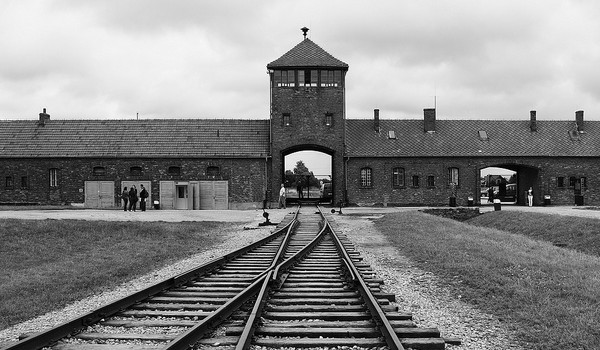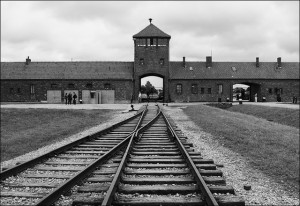Why Holocaust Memorial day is the foundation of our conscience

27th January 2015 marked the 70th anniversary of the liberation of Auschwitz by Soviet soldiers during the final months of the Second World War.

70 years after the liberation of Auschwitz, we must bear the memories of those who saw, suffered and survived. Photo: Ted and Jen
3,000 people, including hundreds of Auschwitz survivors, attended a remembrance service before the gates of the infamous concentration camp.
The death camp saw the murder of an estimated 1.5 million people, of which 1.1 million were Jews, as part of Hitler’s Final Solution which sought to eliminate racial impurities.
For many of the attending survivors, the memorial represented what will possibly be their final participation in a major commemoration of the liberation of Auschwitz.
Of the several survivors who addressed the audience, Halina Birenbaum and Roman Kent, both 86, best verbalised the shared sentiments of others present.
For these two former inmates, the occasion of the camp’s liberation offers current generations the chance to recognise and challenge the advancing tides of racism and anti-Semitism threatening to wash over Europe.
Birenbaum commented: “The evil of Auschwitz lingers in the growing terror, anti-Semitism, racism and the public and unpunished beheadings of people for the sole reason that they are different.”
In a particularly moving speech, Kent told the audience that he and fellow survivors “do not want our past to be our children’s future”, a remark which he passionately described as the “key to my existence”.
He implored mankind to develop its “great traditions” to ensure that we “embrace pluralism and tolerance, decency and human rights for all people, and must include opposition to anti-Semitism and to racism of any sort. It should be commonplace rather than exceptions”.
The survivor’s concerns are certainly justified. Over the past year, a burgeoning sense of racial intolerance has developed across the European continent, exemplified by a growing number of anti-Semitic attacks within some of its most pluralistic countries.
We need look no further than the horrific events in Paris earlier this month. In two attacks carried out by Islamist extremists, a total of 17 people were shot dead. In one of these assaults, four people were killed at a kosher supermarket in the east of the city. Subsequently, concerns have been raised about the security of Jews in France.
Retreating further to the summer of 2014, anti-Semitic attacks were reported in a number of German cities including Berlin and Frankfurt.
Speaking to the Guardian at the time, Dieter Graumann, president of Germany’s central council of Jews, claimed that the country was experiencing “the worst time since the Nazis”.
These attacks have coincided with heightened tensions between Israel and Palestine; a source of constant conflict and a catalyst for increased violence between Jews and Muslims in Europe. However, Graumann denied that this was a causal factor for these attacks.
He argued: “On the streets you hear things like ‘the Jews should be gassed’, ‘the Jews should be burned’.”
He continued: “Anyone saying these slogans isn’t criticising Israeli politics, it’s just pure hatred against Jews: nothing else.”
We cannot afford to simply dismiss these incidents as anomalous to the current racial climate in Europe. Rather, they are indicative of a growing racial discord that stands as a menace to progress, pluralism and understanding. If we fail to address this growing dichotomy, we risk repeating the mistakes that led to the deaths of millions of persecuted ethnic and racial groups 70 years ago.
In light of this, it is imperative that we heed the warnings of Holocaust survivors. For the overwhelming majority of us who did not experience the torture of the concentration camps, the testimonies of those who survived must not be allowed to drift into obscurity and out of the global collective memory.
Eoin O’Sullivan-Harris
























Facebook
Twitter
Instagram
YouTube
RSS